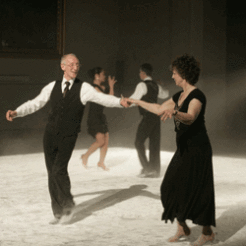Fundraisers from traditional charities need to re-think their approach to major donor fundraising, and the wealthy in general, if they are to attract the kinds of major gifts that the arts and higher education enjoy, says Adrian Beney
In Fundraising’s March Agent Provocateur Mark Astarita, director of fundraising at the British Red Cross, wrote about his concern about the matched funding schemes which have been in operation in the higher education sector, and are now starting in the arts sector, arguing that it may be unfair that charities no longer face a level playing field.
I would say, wouldn't it be great if there were some matched funding scheme for the non-higher education, non-arts sector, especially if it was aimed specifically at raising major gifts? But that’s to miss the point. Mark argues that because of their wealthier prospect pools, these two sectors already have an inbuilt advantage. I disagree.
I would argue that, well expressed, much of the charity sector has an inbuilt advantage. Why? Because its case for support is usually so much simpler. Mark suggests that education and the arts have an advantage over cancer, children and overseas aid charities. But universities are doing cancer, children and overseas development work. Donors are funding work in micro-biology, in centres to look at better organisation of social work, and (in the case of someone I met today) in research on predicting where the world’s next flash points might be, and how to change social, political and economic circumstances there in order to resolve conflict before it happens. These are all closely related to the work of, say, Cancer Research UK, Action for Children and the Red Cross.
At the recent Institute of Fundraising conference on major gifts, I was surprised to hear how reluctant are some chief execs and trustees to engage with donors and to allow them to speak into the life of the charity. (And I know I am writing this against the background of the furore over LSE and Libya.)
But until the sector stops viewing wealthy people with suspicion, and starts instead to embrace their wisdom and interest as well as their money, the gap in major gifts between the HE and arts sector and the rest of the not-for-profit world will remain. On the other hand, if the “conventional” charity sector gets really serious about this work – and the 180 delegates at the IoF Conference suggests that it might be – then the HE and Arts sectors will have some real competition on their hands. Bring it on!
Fundraisers must stop treating the wealthy with suspicion
11 Mar 2011
Voices
Fundraisers from traditional charities need to re-think their approach to major donor fundraising, and the wealthy in general, if they are to attract the kinds of major gifts that the arts and higher education enjoy, says Adrian Beney

V&A Museum








